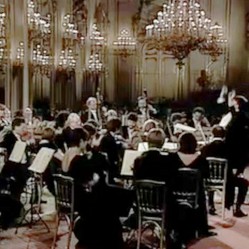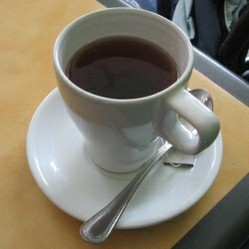There is no such thing as a universally "best" recording of anything, because different people have different tastes. Here I share my favorite recordings of my favorite Mozart symphonies, and I explain why I like both the works and the recordings.
I recommend against buying a "cycle" or complete set of Mozart symphonies. These sets are expensive, and my experience is that most people actually like a small number of the symphonies much more than others. I can't guarantee you have the same tastes as me, but I have noticed that many other classical music enthusiasts also share my tastes in these works, so hopefully this will be a good starting point.
In terms of the symphonies, my favorites are #35 through #41, with 41 (Jupiter) being my all-time favorite, and #40 and #35 runners up, but I like #36-39 and do enjoy some of the earlier symphonies as well.









 The Shaming of Femininity and Elevation of Masculinityon 07/13/2017
The Shaming of Femininity and Elevation of Masculinityon 07/13/2017
 What is Genderqueer or Non-Binary Gender?on 10/16/2015
What is Genderqueer or Non-Binary Gender?on 10/16/2015
 Resources for Learning Spanish Free Onlineon 04/13/2016
Resources for Learning Spanish Free Onlineon 04/13/2016
 Ways Native Plants Can Help Control Invasive Plantson 05/26/2016
Ways Native Plants Can Help Control Invasive Plantson 05/26/2016



Share your favorites!
Haha, yes, I have occasionally had people tell me I look like Bill Gates, although more recently I've had people tell me I look like Hank Green (I have new glasses since the pic here, which look more like his).
But yes, I've heard that Mozart can improve cognitive function, resulting in doing immediately better on part of an IQ test. Is it just Mozart though? I'm not sure the degree to which it's been exhaustively explored how much this effect is caused by listening to Mozart in particular, vs. other types of music. But music definitely does have a noticeable effect on how the brain works!
I HEART Mozart. They say listening to his music can actually increase your I.Q. Did anybody ever tell you that you look like Bill Gates?
Thank you! I am definitely a big classical music fan so there are a lot of other topics and composers I could write about!
This is a really well written and informative piece and the layout looks good too. I think this idea to focus on classical music is a really good one. There are some good tips here and for anyone who would like to learn more about classical music this is very useful and, for me anyway, at the perfect level. I look forward to more.